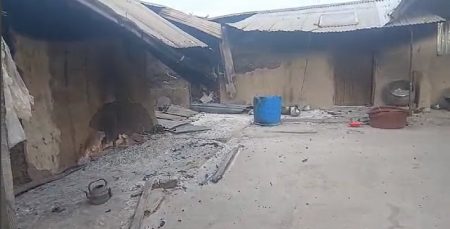The Oti Region of Ghana is grappling with a severe typhoid outbreak, rapidly escalating into a public health crisis of significant proportions. Regional Minister John Kwadwo Gyapong has expressed profound concern over the explosive growth in cases, painting a stark picture of the disease’s grip on the region. Initial figures from the first quarter of 2025 revealed a staggering 10,233 confirmed cases, impacting approximately 5% of the Oti population. This alarming statistic translates to roughly two out of every twenty individuals in the region contracting typhoid. However, the situation has drastically worsened, with recent reports indicating that the number of confirmed cases has more than doubled to a shocking 22,261, emphasizing the urgent need for intensified interventions.
The escalating typhoid crisis poses a significant threat to the health and well-being of the Oti Region’s population. The sheer scale of the outbreak underscores the vulnerability of the region’s healthcare infrastructure and the pressing need for robust public health measures. The rapid increase in cases, despite initial efforts to contain the spread, highlights the severity of the situation and the challenges in effectively addressing the underlying causes. The alarming rate of infection, with one in ten individuals now affected, signifies a critical juncture in the outbreak, demanding immediate and comprehensive action to avert a full-blown health catastrophe.
In response to the initial surge in typhoid cases, the Regional Environmental and Sanitation Secretariat implemented a six-month awareness campaign targeting communities across the Oti Region. This campaign aimed to educate residents about typhoid prevention strategies, emphasizing hygiene practices and other preventative measures. Despite these efforts, the number of cases continued to climb, indicating the need for more aggressive and targeted interventions. The ineffectiveness of the initial awareness campaign underscores the complex nature of the outbreak and the challenges in achieving behavioral change within the affected communities. It also suggests potential limitations in the reach and impact of the campaign, necessitating a reassessment of communication strategies and community engagement methods.
Recognizing the gravity of the situation, the Oti Regional authorities have deployed a specialized task force to combat the escalating typhoid crisis. This task force is tasked with intensifying public health efforts through door-to-door educational campaigns. This direct approach aims to provide tailored guidance and support to individual households, ensuring that critical information on typhoid prevention reaches every member of the community. The deployment of a dedicated task force reflects a heightened commitment to tackling the outbreak head-on, utilizing a more proactive and targeted approach to community engagement.
The decision to implement door-to-door education represents a shift towards a more personalized and intensive approach to community engagement. This strategy recognizes the potential limitations of broader awareness campaigns and aims to bridge the gap between information dissemination and behavioral change. By engaging directly with households, the task force can address specific questions and concerns, dispel misinformation, and provide tailored guidance on preventative measures. This personalized approach is crucial in fostering greater community ownership and adherence to recommended practices, ultimately contributing to a more effective response to the outbreak.
The typhoid outbreak in the Oti Region serves as a stark reminder of the critical importance of robust public health infrastructure and proactive disease surveillance. The rapid escalation of cases underscores the need for early detection and swift intervention strategies to prevent outbreaks from spiraling into full-blown crises. The ongoing efforts to combat the typhoid outbreak in the Oti Region highlight the crucial role of community engagement and education in effectively addressing public health challenges. The experience in Oti Region provides valuable lessons for other regions and countries facing similar public health threats, emphasizing the need for preparedness, rapid response mechanisms, and sustained community engagement to mitigate the impact of infectious disease outbreaks. The situation also underscores the importance of investing in preventative measures, including improved sanitation and hygiene practices, to minimize the risk of future outbreaks.














